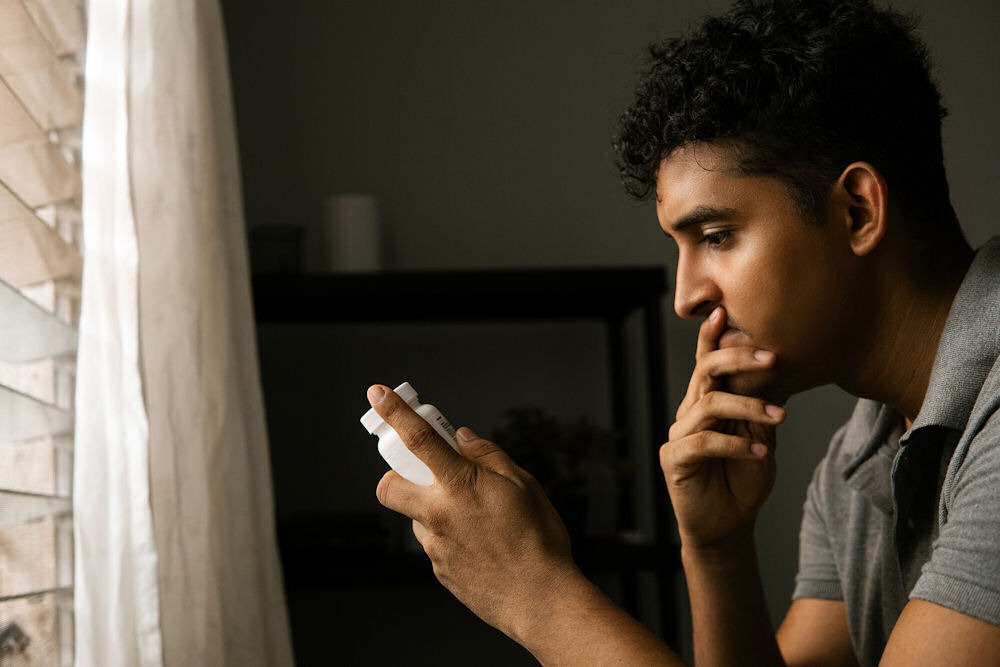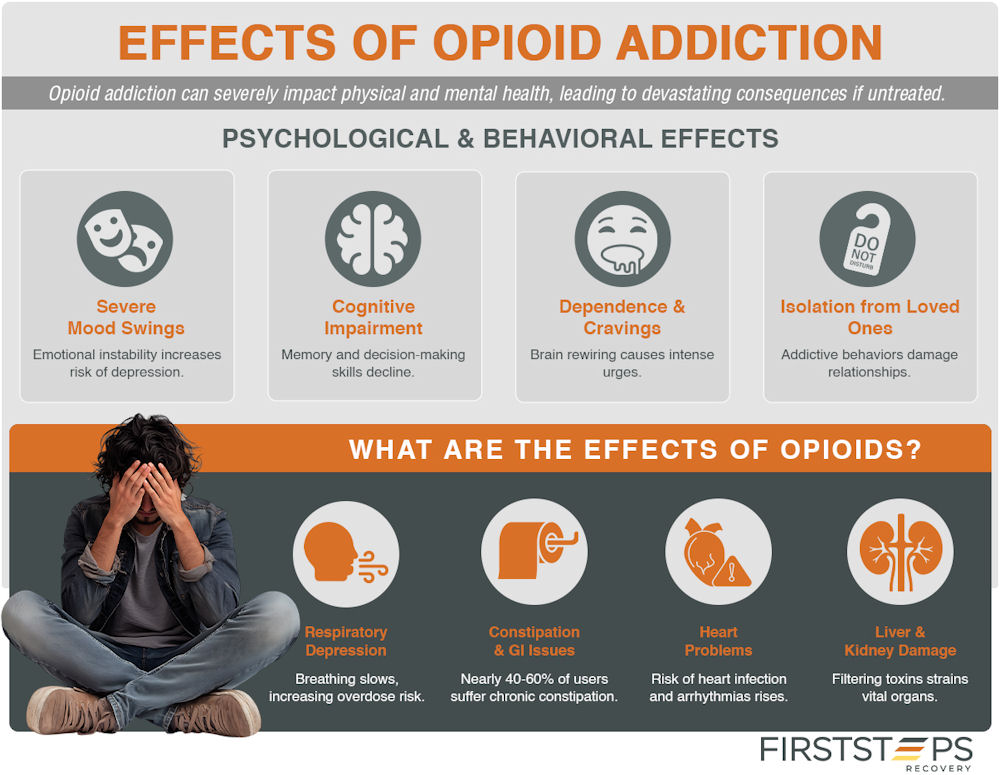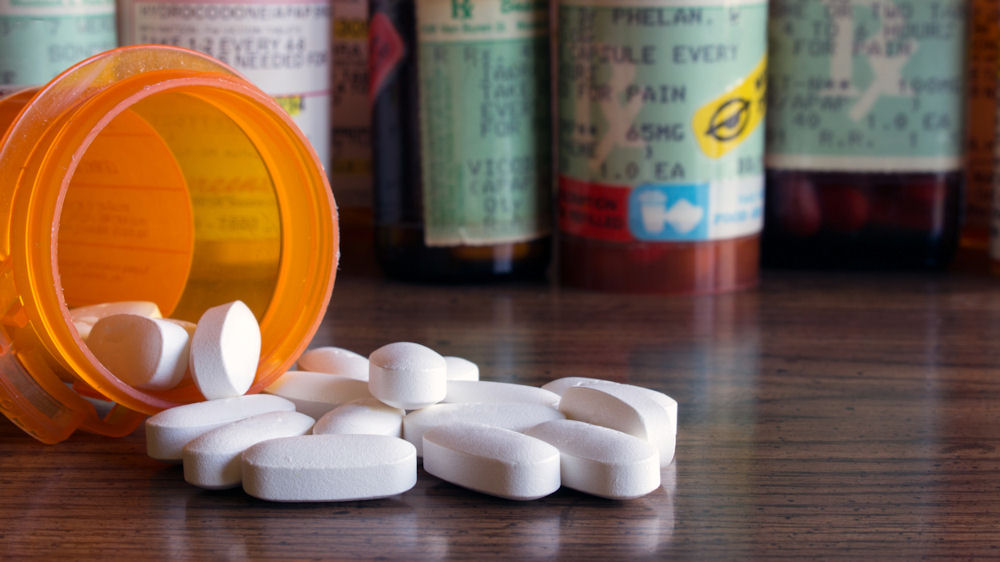At First Steps Recovery, we offer tailored support to individuals who are fighting opioid addiction. Located in Fresno County, California, our opioid rehab center is committed to providing compassionate and effective opioid addiction treatment to individuals of all walks of life.

Opioids are a class of drugs that interact directly with the body’s central nervous system to reduce pain. This category of drugs includes opiates, which are substances derived from the opium compound found in the poppy plant. Opioids can range from the very dangerous fentanyl to the cold medicine codeine. The term “painkillers” is often used to refer to opioids, although the category also includes analgesic drugs.
Many opioids are used for legitimate medical purposes. For example, fentanyl is used to treat persistent cancer pain and is frequently a key ingredient in epidural treatments designed to ease the pain of childbirth. However, many people develop an addiction to opioids after being prescribed them by a doctor.
If someone develops a dependency on opioids, they may resort to doctor shopping or illegal purchasing to obtain more pills in addition to their prescription. Their drug use may change and include stronger substances. Over time, they may turn to cheaper illegal opioids (such as injectable heroin) to satisfy cravings and avoid withdrawal symptoms.

Opioid use disorder (OUD) can appear through a variety of physical, behavioral, and psychological signs. Many people don’t expect to develop an addiction to opioids — they’re just taking medicine for pain relief. But like many prescription drugs, it is possible to develop an addiction to opioids even if the person follows their doctor’s instructions.
Signs of a developing addiction to opioids include:
If you believe someone is suffering from an opioid overdose, call 911 immediately. Place the person on their side. The 911 operator may advise you to use Narcan to treat their acute symptoms.
Be honest about anything they may have taken and how much — this is key to treating opioid-based overdose. They are not going to judge you or your friend for any drug use (or drug abuse). If you think they took a “bad batch” of a drug, say so. Disease control bodies, the Mental Health Services Administration, or law enforcement may benefit from knowing who used that particular batch and when.

Common withdrawal symptoms for opioids include nausea, vomiting, muscle aches, anxiety, and insomnia. But opioid withdrawal is similar to detoxing from alcohol addiction due to its distinct phases. Each phase has a different level of danger, but medical supervision is recommended during every phase so that any complications can be immediately addressed.
It’s important to note that people may not always experience withdrawal from opioid dependence the same way. Factors like age, individual health, addiction intensity, and the opioid to which that person was addicted can all affect the withdrawal process. This is another reason to consider detoxing under the supervision of medical professionals.
Medical supervision during detox can help manage withdrawal symptoms and ensure safety and comfort. This process is commonly referred to as medical detox. People can receive “helper” medications to feel more comfortable during the withdrawal process, be guided through the process of tapering off opioids, and receive immediate medical attention if their body has a poor reaction during opioid withdrawal.
Acute withdrawal is the initial phase of detox. It is typically marked by the onset of physical withdrawal symptoms. This phase typically peaks within the first few days of detox and gradually subsides as the body adjusts to the absence of opioids. Our medical team closely monitors individuals during acute withdrawal, ensuring their safety and overall well-being.
Symptoms of opioid withdrawal can begin in the first 12 hours after the last use of an opioid. People may experience uncomfortable symptoms such as muscle aches, sweating, anxiety, or stomach pain.
Opioid abuse may also cause psychological changes. After excessive use of opioids you may notice these psychological signs:
PAWS refers to Post-Acute Withdrawal Syndrome, which refers to the lingering of symptoms for a prolonged time after the initial detox. People detoxing from opioids may experience feelings of depression, vomiting, diarrhea, and cravings for weeks after the initial detox period. Maintenance therapy to maintain sobriety can be invaluable.
It’s important to remember that opioid addiction (like any other form of drug abuse) is a chronic disease. Needing to deal with the effects for a long period doesn’t mean you’re “broken.” Having drug use problems doesn’t make you a bad person. Asking for help in beating substance abuse makes you a brave person.

The decision to enter an addiction treatment program for opioid addiction is extremely personal. But it’s also a unique opportunity to focus on treating your addiction in a focused way, with the support of other people dealing with similar challenges.
If any of the following conditions are true for you, it may be time to consider entering an addiction treatment program designed to treat opioid use disorder:
Not all treatment programs require staying in an inpatient program. We at First Steps Recovery offer an online IOP treatment program that provides support to people who live far from a treatment center, have transportation issues, or have other obstacles to conventional treatment.

At First Steps Recovery, we work to provide effective treatment and be a source of hope for individuals seeking freedom from opioid use disorder. Our team of dedicated professionals includes medical doctors, therapists, and support staff, all committed to guiding individuals through every step of the recovery journey.
First Steps Recovery offers a range of behavioral therapy options, including cognitive-behavioral therapy, family therapy, and holistic approaches that address the mind, body, and spirit. Group therapy sessions provide a supportive community where individuals can share experiences, gain insights, and build connections with others on a similar journey. In addition to primary treatment, we offer aftercare services to support individuals as they transition back into daily life.
If you or a loved one is grappling with opioid use disorder, take the first step towards recovery by reaching out to our compassionate team. Contact us today and learn how we can help guide you through healing from opioid addiction.

From our certified therapists and nurses to our emotional support animal "Cooper", our entire team is dedicated to the health and success of our clients throughout our program and beyond.
Have questions about how our treatment programs works? Let's talk.
Experience the benefits of our alcohol detox treatment at First Steps Recovery.
First Steps Recovery can help you find lasting sobriety from benzodiazepines.
Fentanyl is one of the most common causes of drug overdose in the United States today. Help end your addiction with First Steps Recovery.
When you're ready to end your methamphetamine addiction, we're here for you at First Steps Recovery.
Have questions about our substance abuse treatment programs? Let’s talk.
Dayatra L.
Melissa B.
Bruce G.
Have questions about how our alumni program works? Let's talk.









Dr. Belis Aladag is a board-certified physician in Addiction Medicine and Family Medicine, with a Master of Public Health from Johns Hopkins. She brings more than 15 years of experience in clinical care, medical education, and leadership. Recognized as a “Top Doctor” in Sacramento Magazine and Los Angeles Magazine, Dr. Aladag is dedicated to compassionate, evidence-based care and expanding access to mental health and addiction services.

Have questions about First Steps Recovery? We're here to help.
© Copyright 2023 • First Steps Recovery • All Rights Reserved
